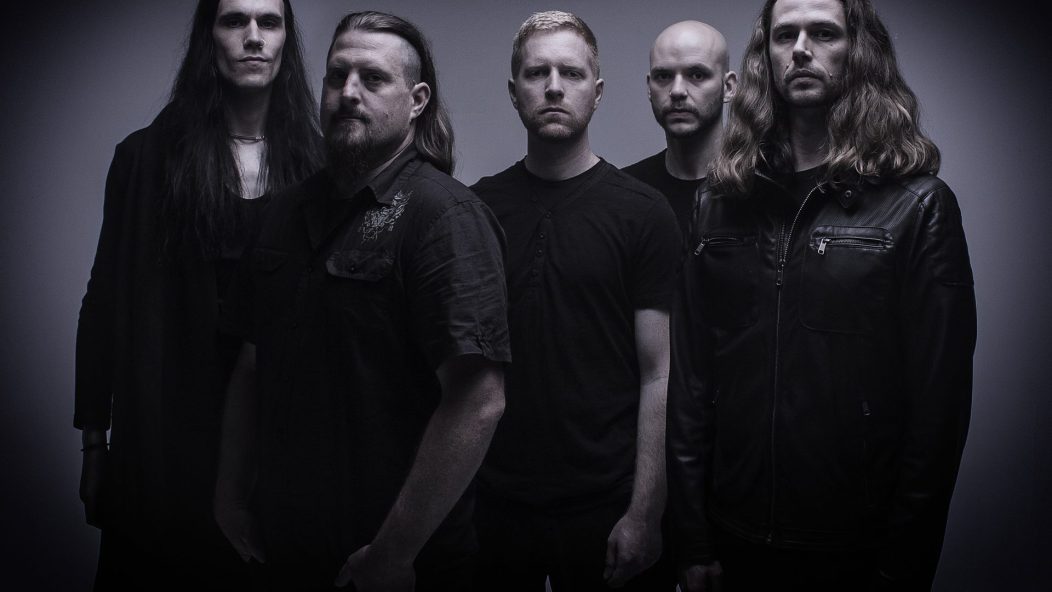
Ne Obliviscaris Put Progress In Motion

…
There’s a huge difference between progressive rock and progressive metal. Although the two forms share similarities, the main contrast is artistic intent. A lot of progressive metal relies heavily on technicality and bombast: guitar solos and virtuosity are a must — the subject matter and actual musical innovation tends to take a back seat to the theatrics. Progressive rock, on the other hand, typically puts its emphasis on content: technicality isn’t paramount to its success, it’s the means to an end.
Australia’s Ne Obliviscaris manage to find a sweet spot between the two musical forms. The band’s extensions are often flamboyant, but never out of context. A story is always present. The group’s newest record Urn (released October 27th via Season of Mist) captures the best of progressive metal’s dexterity, all the while remaining completely engaged within the depth and sustainability of progressive rock. The group reaches a compromise to incorporate both forms. Violinist and clean vocalist Tim Charles was raised on progressive metal, but eventually found progressive rock.
“I guess for me the introduction to progressive music started with Opeth when I first heard Blackwater Park,” he notes. “And then I worked backwards through bands like Dream Theater, before eventually falling in love with some of the originators such as Pink Floyd. In the end, there is a definitely a sound that is prog now, that is not that original anymore, and harkens back to either those early pioneers or the brand of prog metal developed by Dream Theater; but I like to think that being a prog band is more about pushing boundaries and refusing to stay static as an artist. It’s in that context that I consider Ne Obliviscaris a progressive band.”
Interestingly, Opeth have dropped almost all their metal influences on their latest releases, and it’s arguably for the better. The progressive rock classic Heritage (2011) could be their best album to date. The group “toned it down” to turn it up, in a sense. Likewise, Urn’s most distinctive quality is its ability to capture contrast — by compromise, Ne Obliviscaris is able to reach a higher artistic and (actual) progressive form. The extremity works because it’s blended within the music’s context, and never really exploited for exploitation’s sake. There is definitely an attempt to bridge two worlds and make a whole through disparate composites.
“I think the main thing is for people to be open-minded when writing and composing,” Charles says. “Forget about boundaries and restrictions; forget about what is or isn’t extreme metal and just write music that you love. That has been our approach since day one and is the reason why our sound has continually developed and evolved. As individuals we are all unique and we try and find and harness that as musicians so we can create something that is special.”
…
…
Ne Obliviscaris’ two vocalists epitomize the balance of the opposites the group infuses: Charles sings clean and maintains the exposition of the band’s compositions while vocalist Xenoyr is the extreme side of the equation, representing the fluxing nature of the band’s moods. Their collaborative workmanship is a common trait of progressive rock; or, the confidence and daring to try varying styles boldly, countering each method with a certain restraint. The group writes the songs as a team, within context and a tried methodology.
“Most of the time we compose the rhythm guitars first, and then add in everything else from there,” Charles explains. “Often, once the drums are added in, the violin, clean vocals, harsh vocals, lead guitar, and bass are all being worked on simultaneously, so it’s often just openly discussing everyone’s different ideas and slowly piecing the song together. Xen and I will often discuss our thoughts on where we feel each of us could sing and I’ll then write vocal melodies, which I’ll give to Xen, who will then write lyrics specifically to suit the melody I’ve written.”
Underneath it all, there’s a flavorful simplicity to Ne Obliviscaris that liquefies the often-complex measures and designs that are produced. If you listen to Urn carefully, you’ll pick up on the almost cherubic nature and softness of the directions traveled. It all starts with a basic and solid foundation.
“We just try and write music that we love,” Charles notes. “We never think too much about technicality, it’s just about making sure every note serves the song, the melodies and chord progressions, to create something that moves you. In the end the biggest difference on this record was probably the less time spent jamming new songs in a room, and the more time composing and sending demos back and forth which gave people a bit more space to develop intricate ideas.”
The result is a record that is of a definite place. Like the progressive rock acts before them, Ne Obliviscaris was able to create a journey’s destination with Urn, a place to escape to, to lose one’s self in. Because the contrasting pieces fill in a complete picture, you’re able to follow along, float down the stream, ride the skies, and travel the landscape. Progressive means something to this band. It’s about movement.
“The album was the best thing we had ever done,” Charles says. “It continued to explore new musical areas and utilized a production and mix that was much more representative of the mixture of extreme and melodic sounds that we had always wanted the band to sound like. For me, creating it was like disappearing down a rabbit hole for several months and hoping that you finish it before you forget how to function in the real world anymore.”
…











